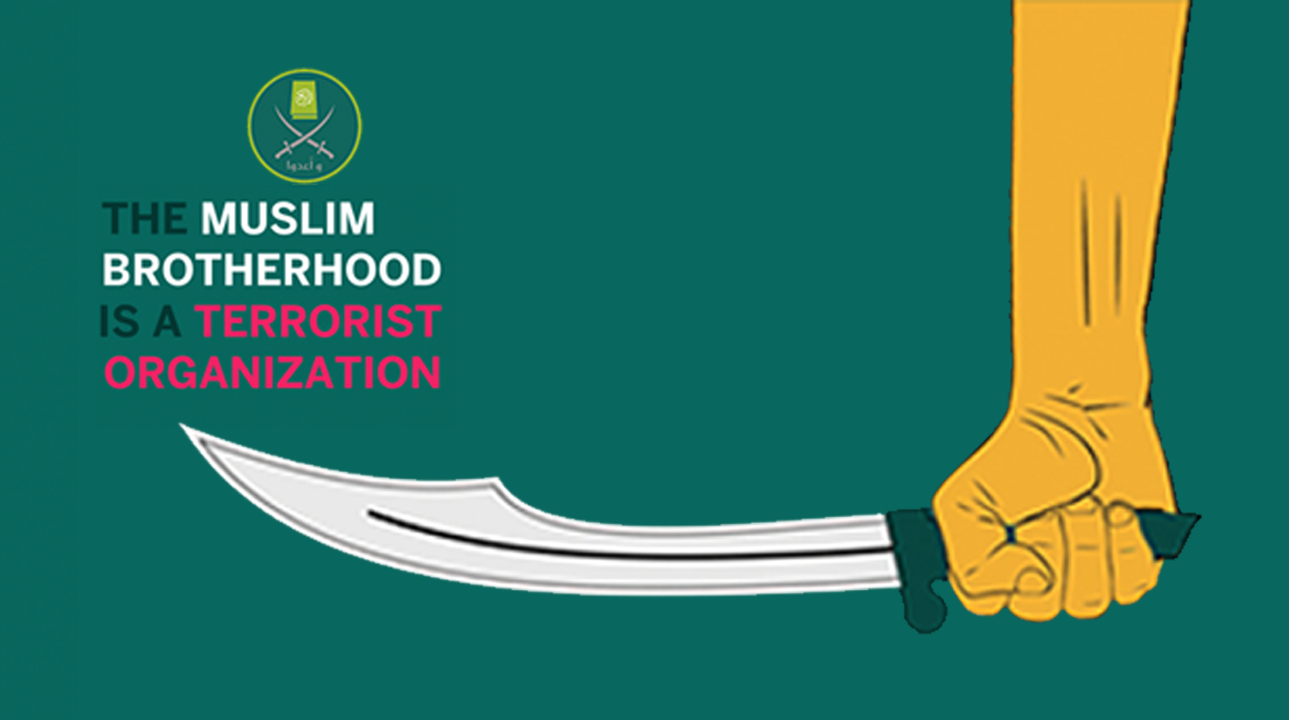Qaradawi is best known in the US for providing fatwas authorizing suicide bombings for Hamas and calling for the death of Americans in Iraq.
Last week the Egyptian Ambassador to the United States Yasser Reda used the opportunity of a Wall Street Journal op-ed to focus attention on the ideologues who promote and support terrorist violence, and called for United Nations efforts to curb terroristic speech with international policy instruments in a manner similar to terror financing. For the subject of their piece, Egypt’s Ambassador focused not on Islamic State’s Al-Baghdadi, or Al Qaeda’s Al-Zawahiri, but rather a man he identified as “the pontiff of terror,” Muslim Brotherhood leading cleric and sharia jurist Yusuf Al-Qaradawi.
The Egyptians have good reason to fear Qaradawi, a long-accomplished jurist with “more than a hundred tomes on theological and jurisprudential issues” to his name, who in 2013 called for those who overthrew the Muslim Brotherhood regime of Mohammed Morsi to be killed.
Qaradawi’s proclamations played a substantial role in the Arab Spring, particular legitimizing jihad in Libya against Qaddafi and in Syria against Hezbollah and the Assad regime. Qaradawi’s pronouncements also played a role in massive and highly anti-Semitic protests in opposition to Israel Operation Protective Edge against Hamas throughout the Middle East, Europe and the United States.
Prior to the Arab Spring, Qaradawi was perhaps best known for providing fatwas authorizing suicide bombings for the Palestinian terrorist group Hamas, and calling for the death of Americans during the occupation in Iraq in 2004.
Unfortunately Reda’s rebuttals falls into some common rhetorical pitfalls. In particular, Reda attempts to contrast Qaradawi’s support for suicide bombings with a prohibition against suicide found in Islamic law. While it’s admirable for the Egyptian diplomat to admit that Qaradawi deals in questions of Islamic jurisprudence and not an artificial “extremism” unrelated to questions of Islamic jurisprudence, Reda’s argument against Qaradawi’s positions lack a solid basis.
The very statement Reda quotes to condemn itself invokes Qaradawi’s defense against the charge. Reda quotes Qaradawi on Al Jazeera suggesting that suicide operations must be undertaken as part of a military effort by a Jamma (party or group) and not by a single individual. But Qaradawi’s formulation eliminates the possibility that a person has taken their own life only out of their own personal despair, and not in order that “they fight in the cause of Allah, so they kill and are killed.” (Sura: 9:39)
Even while making an effort to minimize Qaradawi’s juridical authority, Reda ultimately seems to accept that Qaradawi’s interpretation carries serious weight among his audience, and that those who hear his appeals to violence on the basis of sharia may act upon it.
Far too many western analysts cannot bring themselves to make even this reasonable concession to reality.
Reda also dispatches with the nonsense notion that Qaradawi’s views, which uphold suicide bombings, jihad and revolution are, in any way, the views of a “moderate.”
Qaradawi has been a bugbear for several Arab States, including Egypt, but also the United Arab Emirates, which designated Qaradawi’s International Union of Muslim Scholars (IUMS) as a terrorist group.
Reda’s proposed solution raises some questions and some concerns. Reda proposes a United Nations apparatus to designate ideologues like Qaradawi, in the same manner as designating terror financiers, and to sanction them accordingly.
To begin with Qaradawi is already the head of a U.S. and Israeli-designated terrorist finance organization, the Union of the Good, as being designated by the United Arab Emirates. Despite this no sanctions have ever been placed directly on Qaradawi or business associated with him.
Qaradawi, who has been banned from entry to numerous countries including the United States, France, and Ireland, faces an Interpol “red notice” seeking his arrest and return to Egypt to stand trial on charges of incitement to murder.
In other words, if the nations of the world were so inclined, the ability to take action against Qaradawi exists.
Yet Qaradawi continues to enjoy the patronage of Qatar and Turkey, nations that have sought to expand their prestige and position in the Muslim world through a mutually beneficial alliance with the Muslim Brotherhood. As a result, it’s unlikely to see international consensus regarding an effort to sanction him for his calls to violence.
The other problem, of course is Egypt’s own history of seeking to utilize international forums to silence opponents have not always been focused on Muslim Brotherhood and other jihadist ideologues.
Instead Egypt (with the support of the United States), sponsored a 2009 resolution targeting freedom of speech under the rubric of protecting against religious discrimination. As Anne Bayesfky noted at the time:
…Ambassador Hisham Badr, was equally pleased–for all the wrong reasons. He praised the development by telling the Council that “freedom of expression . . . has been sometimes misused,” insisting on limits consistent with the “true nature of this right” and demanding that the “the media must . . . conduct . . . itself in a professional and ethical manner.”
The new resolution, championed by the Obama administration, has a number of disturbing elements. It emphasizes that “the exercise of the right to freedom of expression carries with it special duties and responsibilities . . .” which include taking action against anything meeting the description of “negative racial and religious stereotyping.” It also purports to “recognize . . . the moral and social responsibilities of the media” and supports “the media’s elaboration of voluntary codes of professional ethical conduct” in relation to “combating racism, racial discrimination, xenophobia and related intolerance.”
This is particularly worrisome since the U.N.-based effort is modeled on using “incitement to violence” to trigger legal penalties, which seems similar to the sort of trigger for sanctions proposed by Reda.
While it’s possible that the current proposal by Ambassador Reda is intended only to narrowly focus on the kinds of jihadist ideology promoted by clerics like Qaradawi, it pays to be cautious.
Still Reda’s editorial displays a rare level-headedness about the depth of the problem, and a willingness to call out not just jihadists but Islamic scholars and clerics who provide legitimacy to jihadist terror.
At a minimum however cooperation between U.S. and western countries and Arab states looking to crack down on Muslim Brotherhood ideologues and their networks would be a key turning point towards responding to the current threat, and one that the U.S. has largely turned a blind eye to. Certainly expanding current terrorism laws to include those, like Qaradawi, who provide ideological and material support to terror, along with including the Muslim Brotherhood as a designated terrorist group, would be a good first step towards “countering the pontiff of terror.”





